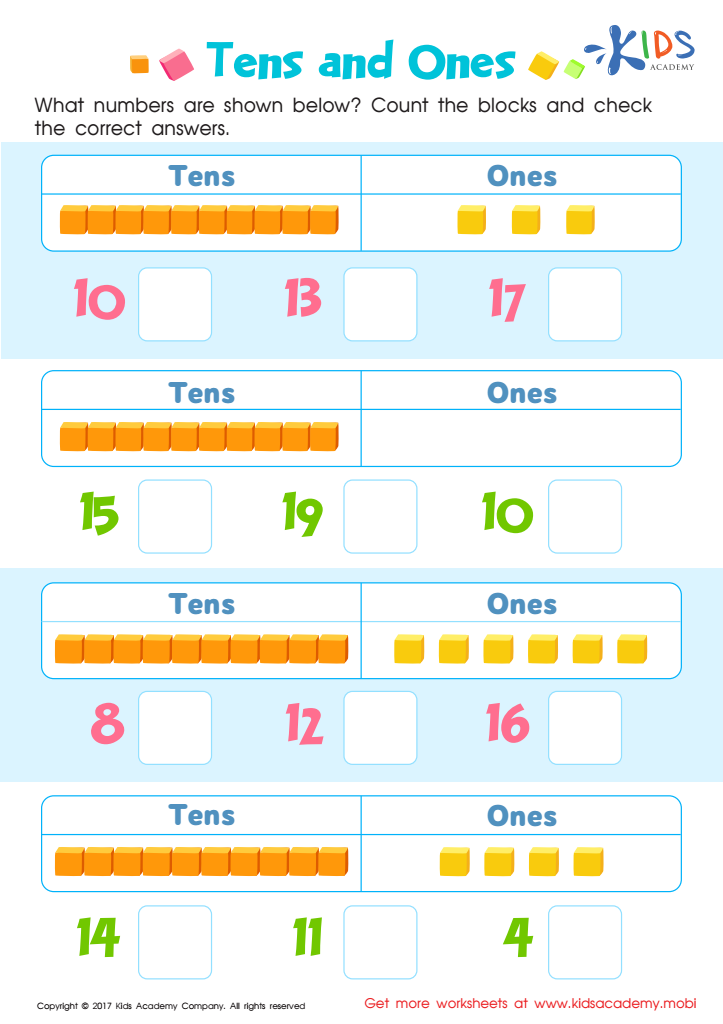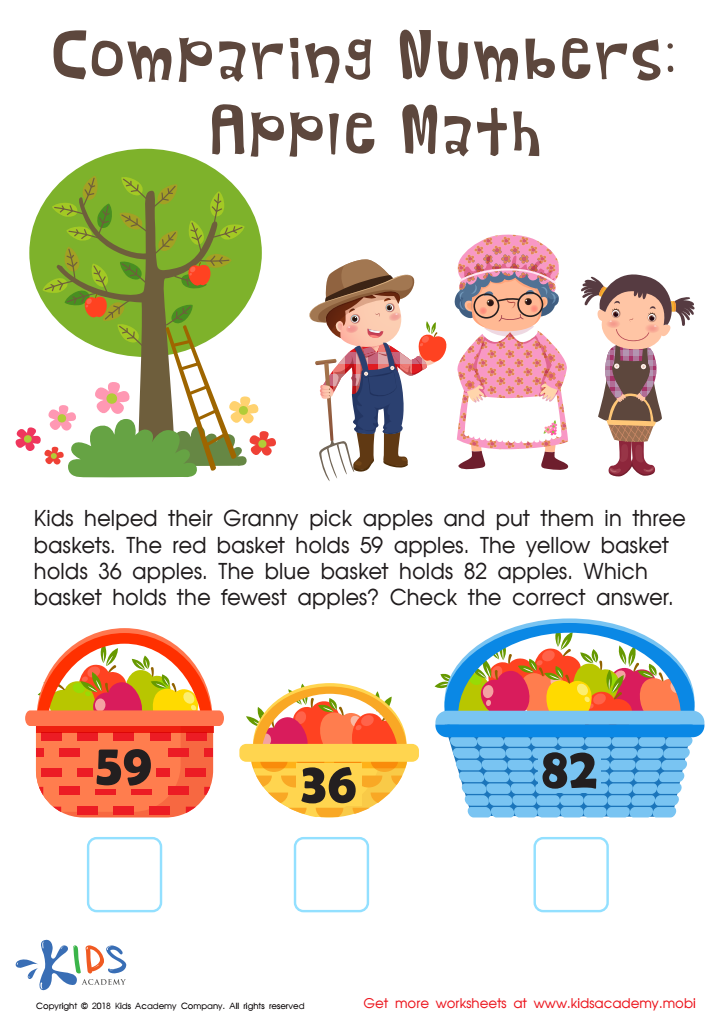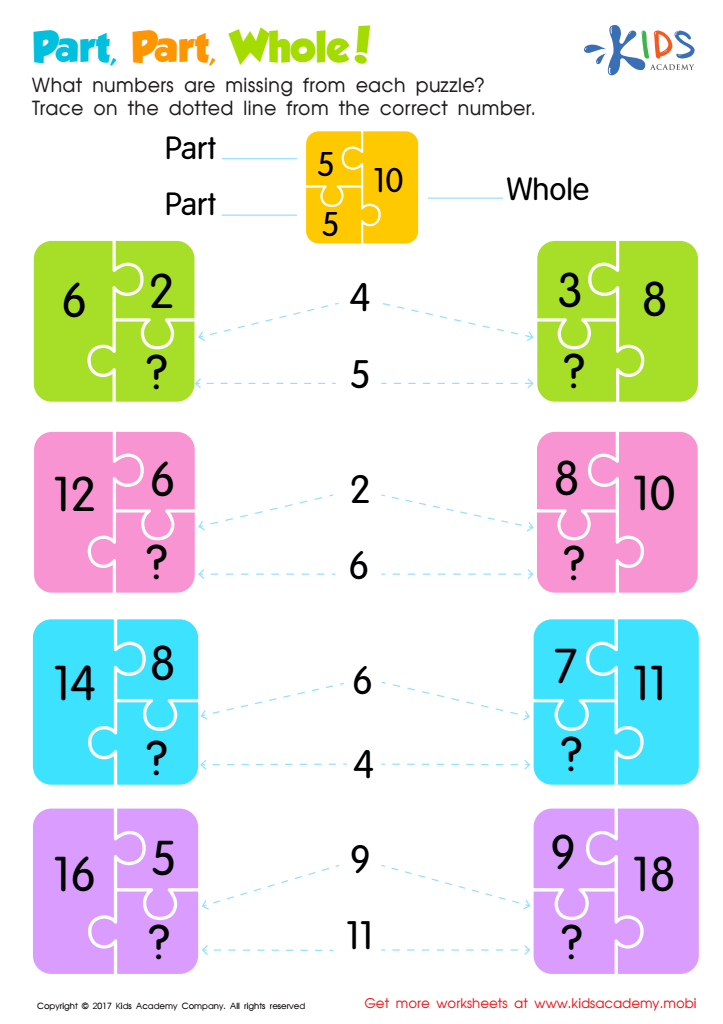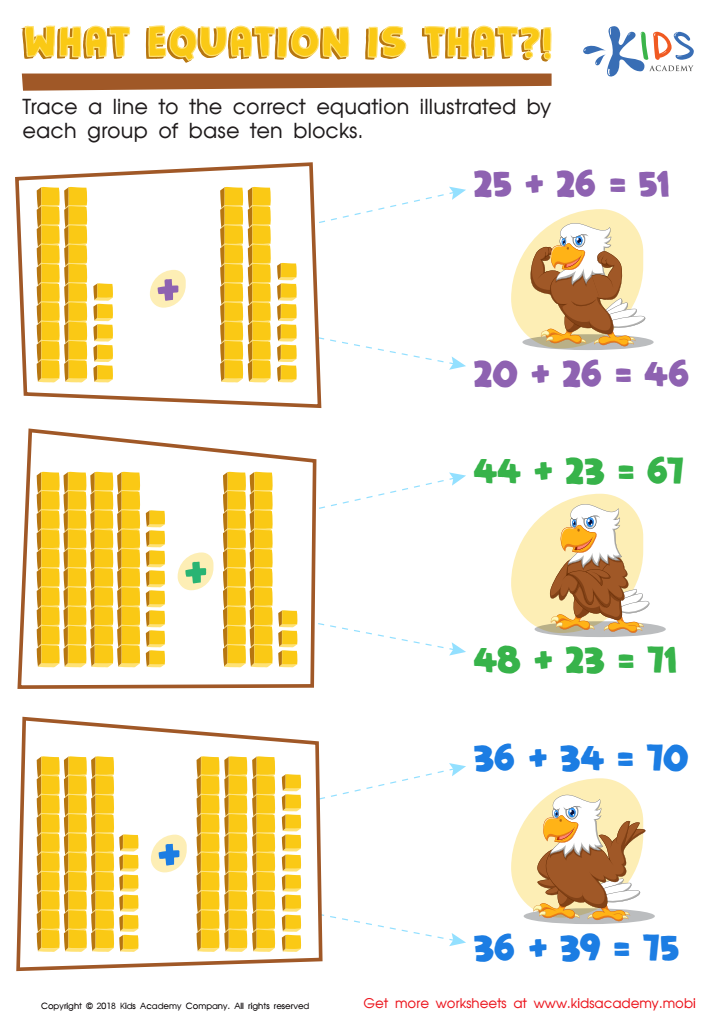Improving number sense Math Worksheets for Ages 5-7
5 filtered results
-
From - To
Unlock your child’s mathematical potential with our "Improving Number Sense" worksheets, specifically designed for ages 5-7. These engaging and interactive resources help young learners develop a strong foundation in number sense through fun exercises that encourage recognition, counting, and basic operations. Our diverse activities promote essential skills, such as number relationships and early problem-solving, making math enjoyable and accessible. Whether in the classroom or at home, these worksheets support comprehensive learning and help build confidence in young mathematicians. Explore our collection today and empower your child with the number sense skills they need to succeed in their educational journey!


Tens and Ones Worksheet


Apple Math Worksheet


Part, Part, Whole Worksheet


What Equation Is That? Worksheet
Improving number sense in children aged 5-7 is vital for their overall mathematical development and future academic success. During these formative years, children begin to form foundational understandings of numbers, patterns, and relationships in mathematics. A strong number sense helps them grasp more complex mathematical concepts later on, making it easier for them to tackle addition, subtraction, and eventually multiplication and division.
Moreover, children with strong number sense tend to be more confident and engaged learners. They can develop problem-solving skills, critical thinking, and a positive attitude towards math, which are essential for academic resilience. When parents and teachers actively support number sense through interactive activities, such as counting games and hands-on learning experiences, they encourage natural curiosity and creativity in mathematics.
Additionally, fostering number sense lays the groundwork for real-world applications, such as budgeting, measuring, and problem-solving in everyday situations. By prioritizing number sense, parents and teachers equip children with essential life skills. This early investment in mathematical understanding forms the backbone of lifelong learning and helps cultivate a generation that views math not just as a subject, but as a tool for exploring the world around them.
 Assign to My Students
Assign to My Students











.jpg)











